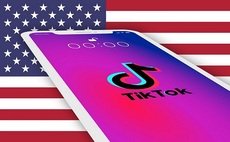Judge throws out case and says Oracle lawyers acted in a "mischievous" way
Oracle has lost yet another appeal in its long-running case against Google over the latter's use of Java APIs, for which Oracle is demanding as much as $9.3bn in compensation. In this latest app...
To continue reading this article...
Join Computing
- Unlimited access to real-time news, analysis and opinion from the technology industry
- Receive important and breaking news in our daily newsletter
- Be the first to hear about our events and awards programmes
- Join live member only interviews with IT leaders at the ‘IT Lounge’; your chance to ask your burning tech questions and have them answered
- Access to the Computing Delta hub providing market intelligence and research
- Receive our members-only newsletter with exclusive opinion pieces from senior IT Leaders




















